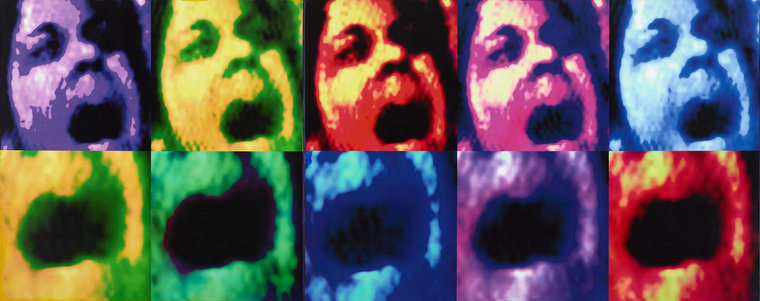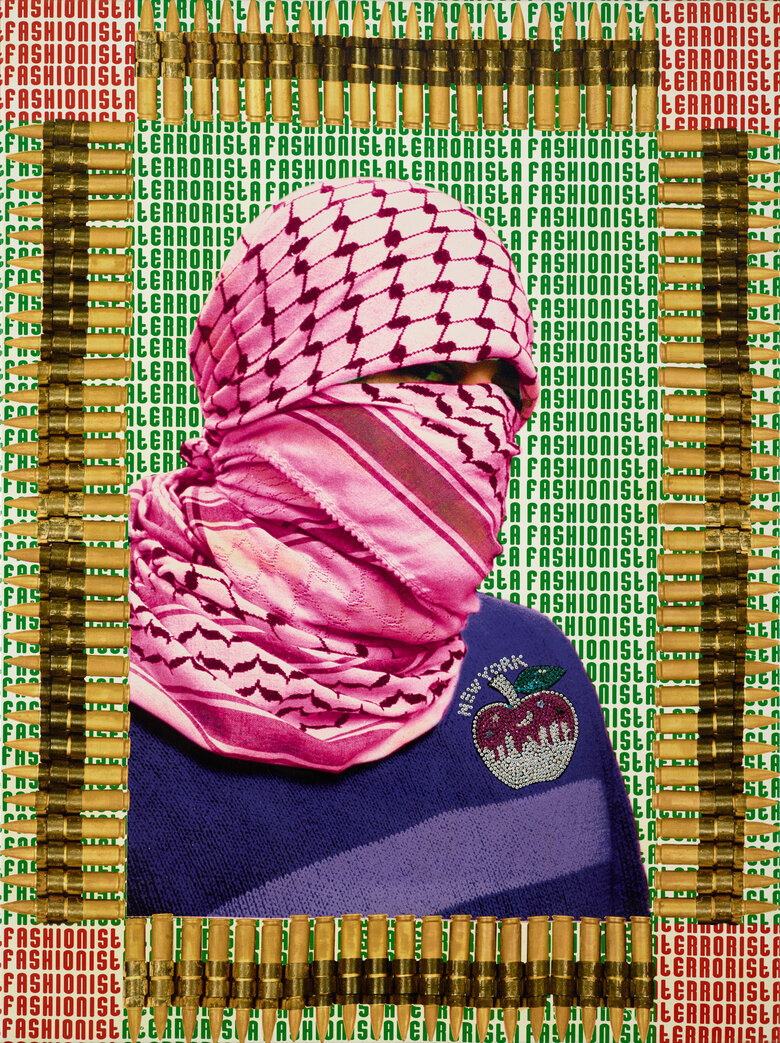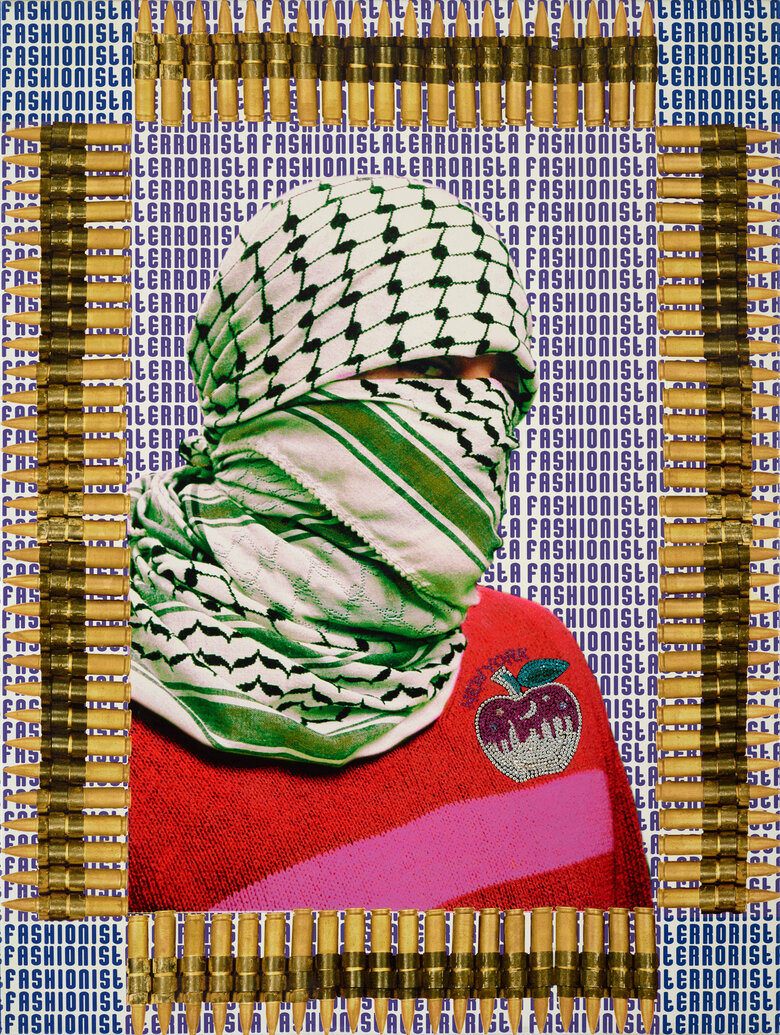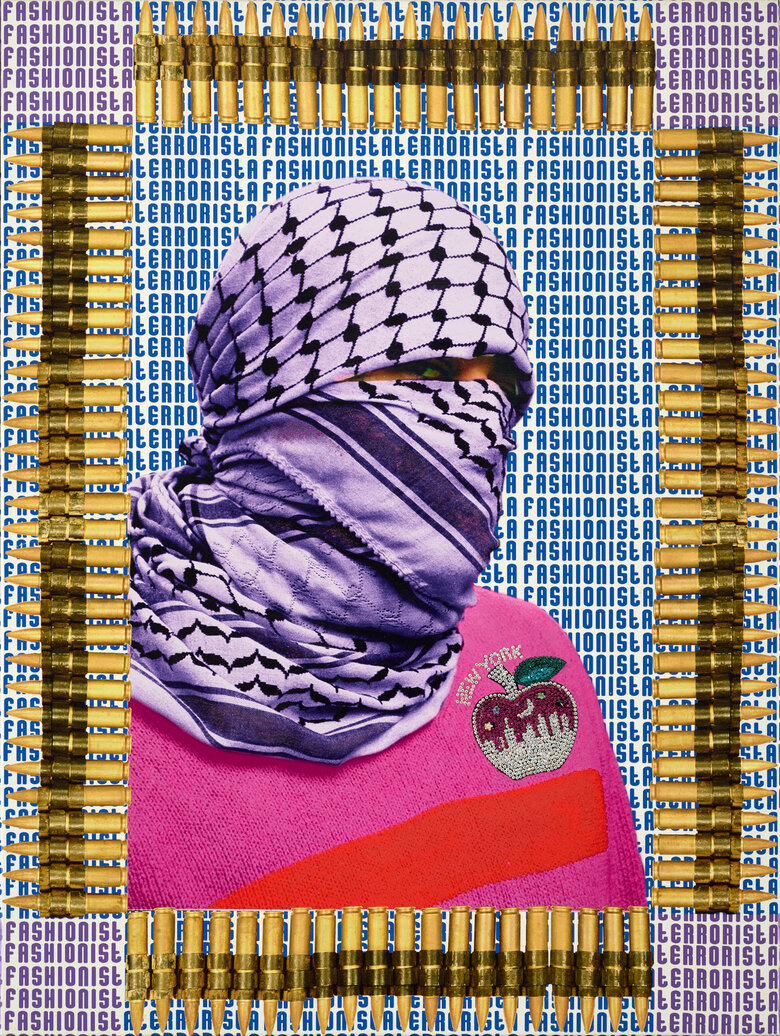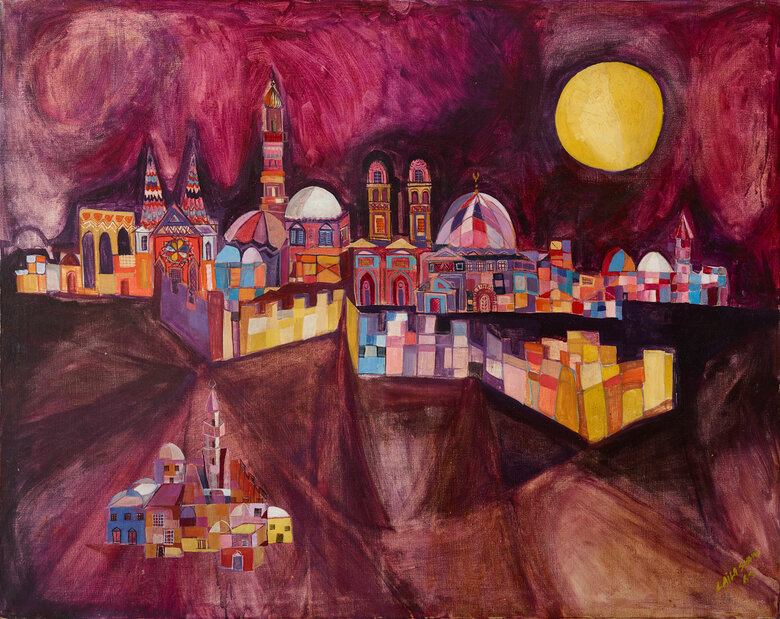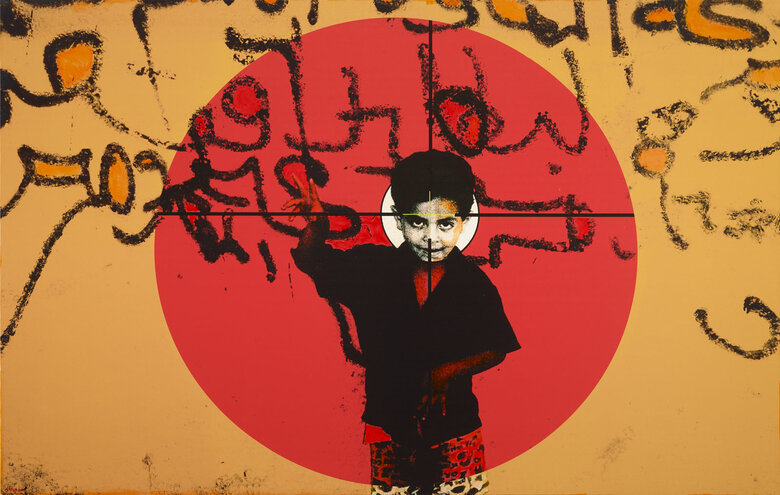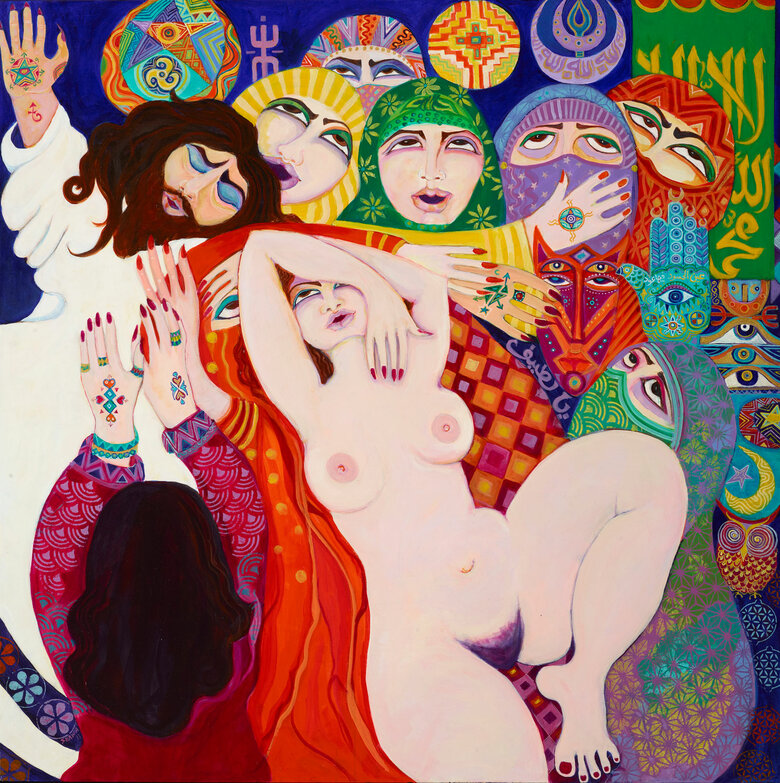Laila Shawa's Scream, 2011, is a mixed media and photography artwork,
depicting a still frame from CCTV footage of a female suicide bomber
captured at an Israeli border checkpoint. Scream features ten consecutive
renditions of the screaming woman in two rows, with the bottom five
focusing on the woman's gaping mouth.
The original video which the artwork is based upon shows the Palestinian female suicide bomber in a security cage, being ordered by the Israeli soldiers to disrobe and reveal the explosive device she was hiding. The woman fails to detonate the device. The camera dispassionately records her anguish and breakdown as she comes to the realization that she will not escape through death as a shahida, and, instead, will be condemned to the mercy of the Israeli military.
The decision to render this piece in the Pop Art style is important to understanding the broader perspective that guided this work. Pop Art is characterized by features such as transience, consumerism, and expendability. By depicting a suicide bomber, Shawa alludes to Andy Warhol’s iconic Merilyn Diptych, 1962, paintings, which were done after the actress’ suicide. However, in her critique of the phenomenon of specifically Palestinian female suicide bombers, Shawa is noting that these women may have had very little choice in the matter.
By juxtaposing the characteristics of pop art with the female suicide bomber,
Shawa is pointing out how this woman, and others like her, are reduced in
two ways. The first is through their own environments, which see these
women as expendable. As Shawa commented: “the more I learned the facts
of her case, the more she seemed the victim, a minor pawn in someone else’s
power-game, whose volunteering for ‘martyrdom’ only spared her from
becoming another casualty of honor killing.” The second way in which
Palestinian women are being reduced is through the media reports about
female suicide bombers, in which these women are denied their own identity
as complete human beings. By memorializing this harrowing moment as a
loop of pop art horror, Shawa is making clear the necessary critiques that
need to be made.
Signed, dated and titled in English on reverse on the stretcher Diptych

